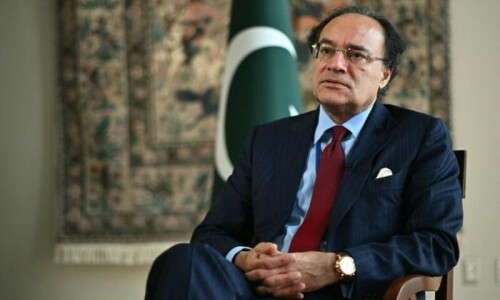The government has decided to incorporate the Senate’s proposal to provide an opportunity for non-filers to have a personal hearing before measures such as SIM blockage and a ban on foreign travel were implemented, Finance Minister Senator Muhammad Aurangzeb said.
Concluding the discussion on the budget 2024-25 in the National Assembly, the former banker appreciated the recommendations presented by the Senate for inclusion in next fical year’s budget.
In the Finance Bill 2024, the government has proposed to ban non-filers from traveling overseas and block their SIM cards, aiming to encourage citizens to become filers — a move that has sparked a debate over its practicality.
He said the budget for the next fiscal year was aimed at narrowing the fiscal deficit by expanding the government’s revenues and cutting unnecessary expenditures.
The Pakistan Muslim League-Nawaz (PML-N) led coalition government is striving to meet the prerequisites for an additional — longer and larger — International Monetary Fund (IMF) programme, by setting a high tax revenue target taking a shot at lowering the fiscal deficit from 7.4% to 5.9%.
It is believed that streamlining the tax collection processes and broadening the tax base would help achieve these fiscal targets.
Pakistan has set a challenging tax revenue target of Rs13 trillion for the year starting July 1, a near 40% jump from the current year to strengthen the case for a new bailout deal with the lender of the last resort. The ambitious revenue targets are in line with analyst expectations.
Following the prime minister’s directives, the emphasis on simplicity and austerity would continue into the next fiscal year, the finance minister said.
The finance czar mentioned that a committee, headed by him, had been formed to present recommendations, including the closure or merger of ministries and their devolution to the provinces.
He announced that future pension expenditures would be reduced through pension reforms.
Senator Aurangzeb highlighted that the home-grown reforms programme formed the basis of next year’s budget to navigate the country through its challenging economic situation.
He said the reforms included increasing the tax-to-GDP ratio to 13%, state-owned enterprises (SOE) reforms, public-private partnerships, and energy sector reforms.
The minister affirmed the government’s serious commitment to this plan and noted that its implementation had already begun. He assured that all stakeholders would be consulted throughout this process.


